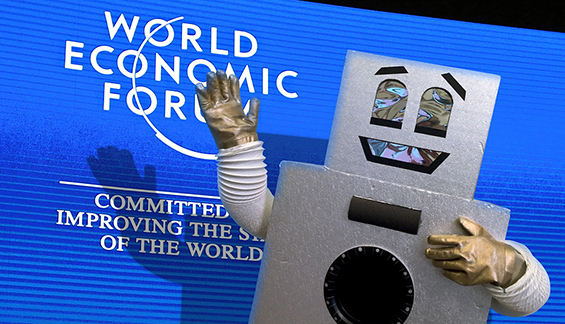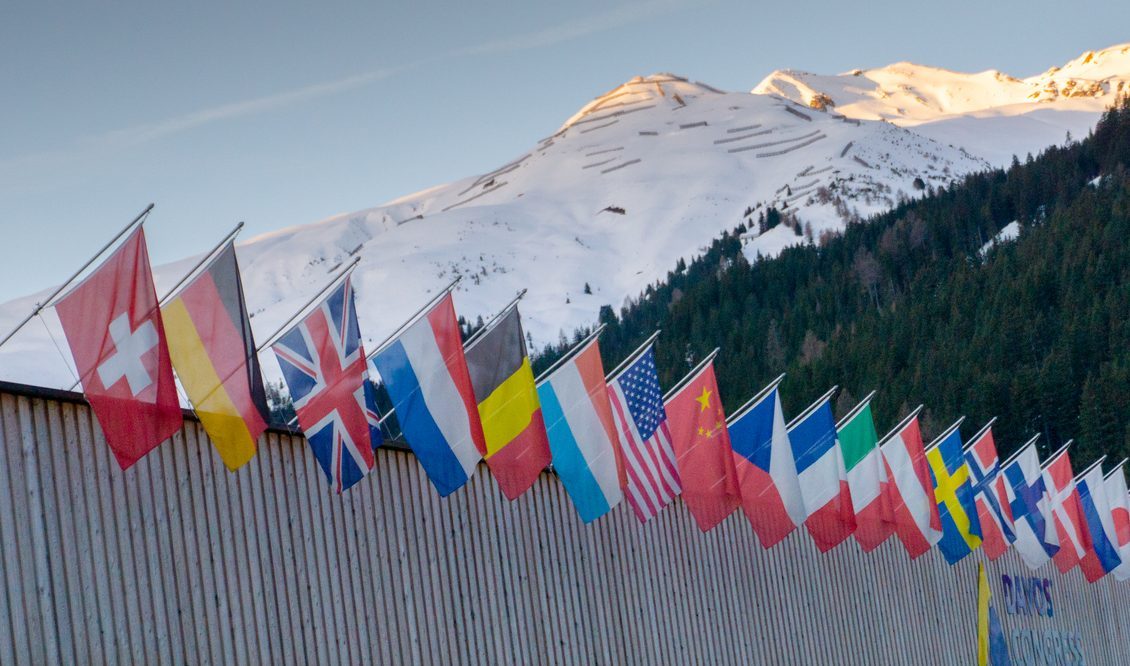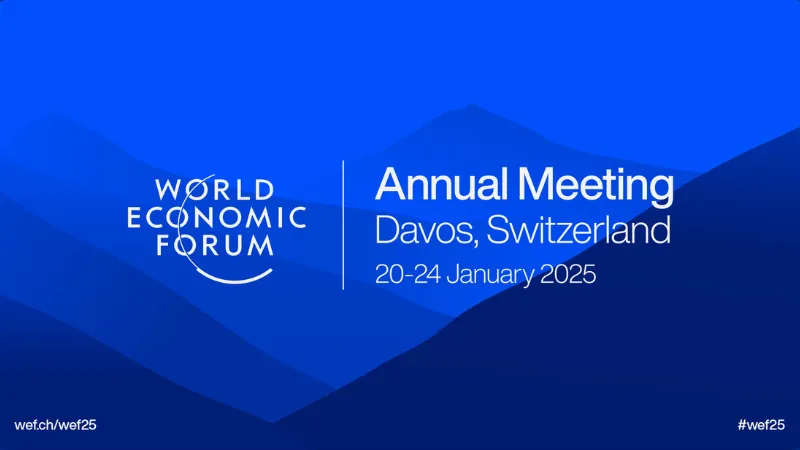Understand Your Rights. Solve Your Legal Problems



Each year, the elite gather in the Swiss Alps for the World Economic Forum (WEF) in Davos, an event that promises to be a forum for solving the world’s most pressing challenges. Yet, as the forum enters its 54th year, it finds itself at the crossroads of criticism and necessity, with growing questions surrounding its relevance and sincerity in addressing the very issues it purports to solve. With the theme of this year’s gathering focused on “Collaboration for the Intelligent Age,” discussions will centre on reimagining growth, investing in people, safeguarding the planet, and rebuilding trust.
This year, the WEF in Davos is hosted between 20-24 January, 2025, and the key question remains: can the WEF truly offer solutions when it is dominated by the very elites whose policies and practices have arguably caused the crises in the first place?
While the WEF continues to draw major names in business, finance, and global governance, this year’s summit stands in sharp contrast to previous gatherings, with several key global leaders notably absent. Chinese President Xi Jinping, Indian Prime Minister Narendra Modi, and Brazilian President Luiz Inácio Lula da Silva—figures who, just a decade ago, were pivotal in shaping the forum’s discourse—are nowhere to be found. The absence of major players from the G20, including leaders from Russia and France, has left some observers questioning whether Davos is still the global barometer it once was. As Jan Aart Scholte, a professor of global transformations and governance challenges at Leiden University, pointed out, this year’s Davos is lacking "big players" and the political firepower it used to command.
Domestic crises, from economic slowdowns to political turbulence, are likely keeping leaders home, but there’s also a deeper, more troubling reason for their absence: an increasing reluctance to participate in what many perceive as an elitist gathering of the global financial and political establishment. What once seemed a prestigious opportunity to drive global change is now regarded by some as little more than a playground for the rich and powerful to wax poetic about solutions that rarely make it past the snow-capped peaks of the Swiss Alps.

There’s no denying that the WEF has become a symbol of global elitism. The forum is notorious for attracting the wealthiest individuals on the planet, the very same people whose actions have contributed to global inequality, environmental degradation, and economic instability. The 4,000 delegates, many of whom are corporate titans, CEOs, and financiers, will gather to discuss issues ranging from technological transformation to climate action, but the very nature of the event raises a troubling question: can those who profit from the status quo be trusted to dismantle it?
This critique of Davos is hardly new. The WEF has long been accused of being out of touch with the very people it claims to represent. It is an exclusive event, often shrouded in secrecy, where deals are struck behind closed doors and the voices of those affected by the decisions of its attendees are conspicuously absent. For years, critics have lambasted the WEF for its hypocrisy—preaching sustainability while its attendees arrive in private jets, advocating for global collaboration while they simultaneously protect their own interests, and professing a commitment to human progress while ignoring the plight of the most vulnerable.
Related: JP Morgan CEO: Jamie Dimon to Attend Davos
Moreover, while the WEF claims to be an impartial platform for global stakeholders, the absence of leaders from countries like Russia and China further highlights the forum’s growing irrelevance in a multipolar world. These nations, especially China, play a pivotal role in global economic governance, yet their exclusion from the forum signals a disconnect between the West and the rest of the world. If the WEF is to claim to be a platform for global collaboration, it cannot afford to exclude such major players simply because they challenge Western-dominated narratives.
As the world becomes increasingly fragmented, the WEF’s message of collaboration rings hollow for many. Populist movements in countries like the United States, Brazil, and Hungary are pushing back against the globalist agenda championed by the forum, accusing it of promoting policies that serve the interests of multinational corporations at the expense of ordinary citizens. The rise of figures like Donald Trump, who has openly derided globalisation and the elites who champion it, reflects a growing sense of alienation and distrust in institutions like the WEF.
Trump’s absence from Davos this year, despite his rising influence, underscores the changing dynamics of global politics. While he was a frequent figure at the forum during his time as president, his populist rhetoric—and that of other nationalist leaders—has made the WEF’s message of cooperation look increasingly out of touch. The absence of leaders like French President Emmanuel Macron and British Prime Minister Keir Starmer, who have distanced themselves from Davos in recent years, further underscores this shift.
What was once a gathering of the world’s most influential leaders is now increasingly viewed as a retreat for a dwindling group of elites who have lost touch with the concerns of the majority. As global inequality widens and the climate crisis deepens, many are asking whether it’s time for a new form of global dialogue—one that includes those who have been historically excluded from power, rather than a self-congratulatory chorus of billionaires and technocrats.
This year’s theme—“Collaboration for the Intelligent Age”—sounds, on paper, like an ambitious attempt to tackle the defining challenges of our time: economic fragmentation, climate change, and technological transformation. But the irony is hard to ignore: the very people discussing these issues are often the same ones who have benefited from the systems that exacerbate them. The WEF may talk about safeguarding the planet, but its attendees are responsible for a system of global capitalism that has led to the depletion of natural resources and the destabilisation of ecosystems. It may talk about rebuilding trust, but how can trust be rebuilt when the very individuals entrusted with shaping the future are seen as part of the problem?
Related: David Beckham Davos Message
For example, the agenda includes discussions on investing in people, yet the corporations represented at Davos are often those responsible for underpaying workers, driving down wages, and contributing to the erosion of workers’ rights in the global South. The irony is further compounded by the forum’s environmental rhetoric—many of its attendees are executives of companies whose operations are deeply intertwined with fossil fuel extraction and environmental destruction. The commitment to sustainability often rings hollow when you consider the luxury yachts, private jets, and lavish dinners that typify the WEF experience.
As Davos 2025 unfolds, the world will be watching—not just to see what happens within the walls of the conference centre, but to see whether the WEF can genuinely address the issues that matter to ordinary people. The absence of key global leaders, the rising tide of anti-globalist sentiment, and the forum’s perceived elitism all point to a growing divide between the powers that be and the people who are most affected by their decisions.
If Davos is to remain relevant, it must evolve. It can no longer be a playground for billionaires and world leaders, a space where decisions are made behind closed doors without accountability. The world is changing, and the WEF must either change with it or risk becoming yet another symbol of the outdated systems it once promised to overhaul. It’s time for a new forum—one that listens to the voices of the many, not just the few.
The World Economic Forum (WEF), a name that evokes images of global elites huddled in alpine resorts, is far more than just an annual meeting in Davos. Over its five-decade history, this event has evolved from a modest gathering of business executives into one of the most influential forums for global discussions on economics, politics, and society. The road to its current prominence, however, has not been without controversy. The World Economic Forum has faced criticism over its elitist nature, its perceived role in entrenching corporate power, and its environmental impact. But despite these criticisms, the WEF continues to attract the world’s top decision-makers, whose interactions in Davos often shape the global agenda for the year to come.
The story of Davos begins on 24 January 1971, when German professor Klaus Schwab, a business management academic at the University of Geneva, founded the European Management Forum. Schwab’s vision was simple yet ambitious: to provide a platform where European business leaders could learn from American management practices. The first meeting, held in the Davos Congress Centre, attracted 450 executives from Western European firms. The event, sponsored by the European Commission and several European industrial associations, was a modest beginning.
However, this early meeting showed Schwab that the forum had the potential to grow beyond mere business management discussions. As the world entered the 1970s, political and economic turbulence, including the collapse of the Bretton Woods system and the Yom Kippur War, prompted Schwab to refocus the WEF on broader global economic issues. By 1974, political leaders were invited for the first time, and the forum’s discussions expanded from management techniques to macroeconomic trends, social issues, and global governance.
In 1987, the European Management Forum was renamed the World Economic Forum, marking its ambition to become a platform for resolving international conflicts, not just business issues. It was during this period that the WEF began its shift from a business forum to a broader, more politically engaged institution. For instance, in 1988, the WEF hosted a landmark event: the signing of the Davos Declaration, a peace agreement between Greece and Turkey that helped prevent military conflict.
The WEF also became an essential venue for leaders to convene and negotiate in private. Notable moments include the 1992 meeting, where South African President F. W. de Klerk met with Nelson Mandela, marking their first public appearance together outside of South Africa. In 1994, the Israeli and Palestinian leadership negotiated a draft agreement on Gaza and Jericho at the annual meeting, further cementing the forum’s role as a platform for diplomacy and conflict resolution.
In the early 2000s, the WEF was forced to reckon with growing criticism. In 2004, José María Figueres, the CEO of the WEF, resigned after it was revealed that he had received undeclared consultancy fees from Alcatel, a French telecommunications company. This sparked concerns about corporate influence within the organisation and raised questions about its financial transparency. The WEF has faced other controversies over the years, including its tax-exempt status, the cost of security for its events, and the environmental impact of the Davos summit.
Nonetheless, the forum continued to grow in prominence. In 2001, in the aftermath of the 9/11 attacks, the WEF held its first meeting outside Switzerland, in New York City, in an attempt to reassert the importance of international cooperation. In the years that followed, the WEF also became a prime venue for the world's most powerful leaders to promote their agendas. This was evident in 2017 when Chinese President Xi Jinping became the first head of state from the People's Republic of China to attend the forum, where he delivered a stirring defence of globalisation in the face of rising protectionism.
Despite its growing influence, the WEF has remained a symbol of globalisation and corporate dominance, which many see as a double-edged sword. Critics argue that the event is nothing more than a lavish gathering for the world’s elites to reinforce their power. With its steep membership fees, limited access, and exclusive nature, the WEF has been accused of being out of touch with the average person’s concerns. This criticism has been fuelled by the fact that the event is frequently held in the wealthy ski resort town of Davos, a symbol of the luxury that many see as incompatible with discussions about global inequality.
The environmental footprint of the forum has also come under fire, especially in light of its discussions on climate change. Every year, private jets, luxury cars, and other carbon-intensive forms of transport are used by thousands of attendees, which has prompted environmentalists to question the sincerity of the WEF’s commitment to tackling global warming. The hypocrisy of a gathering that advocates for sustainability while contributing to environmental degradation has become a prominent point of contention.
Furthermore, the WEF’s ability to shape global agendas has led to accusations of corporate capture. With its membership primarily composed of multinational corporations, the WEF’s policies and initiatives often seem to favour business interests over those of the public or the environment. For example, the forum’s focus on "reimagining growth" and "investing in people" can seem hollow when the organisations at the heart of the forum are often implicated in exploiting labour and accelerating inequality.
In recent years, the rise of populist and nationalist movements has posed new challenges for the WEF. Leaders like Donald Trump, Vladimir Putin, and Jair Bolsonaro have used the platform to promote protectionism and attack the very principles of globalisation that the WEF has championed for decades. In this new political landscape, the Davos forum is increasingly seen as a symbol of the entrenched elite, out of touch with the desires of ordinary people who feel left behind by globalisation.
The theme of the WEF’s 2023 annual meeting, "Cooperation in a Fragmented World," highlighted the stark divisions facing the world today. While globalisation remains a key topic, there are increasing calls for a more inclusive approach that balances corporate interests with social and environmental considerations.
Today, the WEF continues to attract thousands of influential figures, including political leaders, CEOs, celebrities, and intellectuals, who gather in Davos each year to shape the global agenda. Yet, as its influence grows, so too does the scrutiny it faces. Whether the forum can evolve to meet the challenges of a more fragmented world, or whether it will remain a symbol of elitism and corporate power, is yet to be seen. In the end, the future of Davos may hinge on whether it can balance its lofty ideals of "improving the state of the world" with a genuine commitment to addressing the concerns of those who feel excluded from its discussions.
As global issues like climate change, economic inequality, and political instability continue to dominate the agenda, it will be fascinating to see whether the WEF can redefine itself in a way that resonates with a broader, more sceptical public. If it cannot, Davos may well remain the playground for the powerful — a venue for world leaders and billionaires to discuss the future of a world that many feel they do not belong to.


